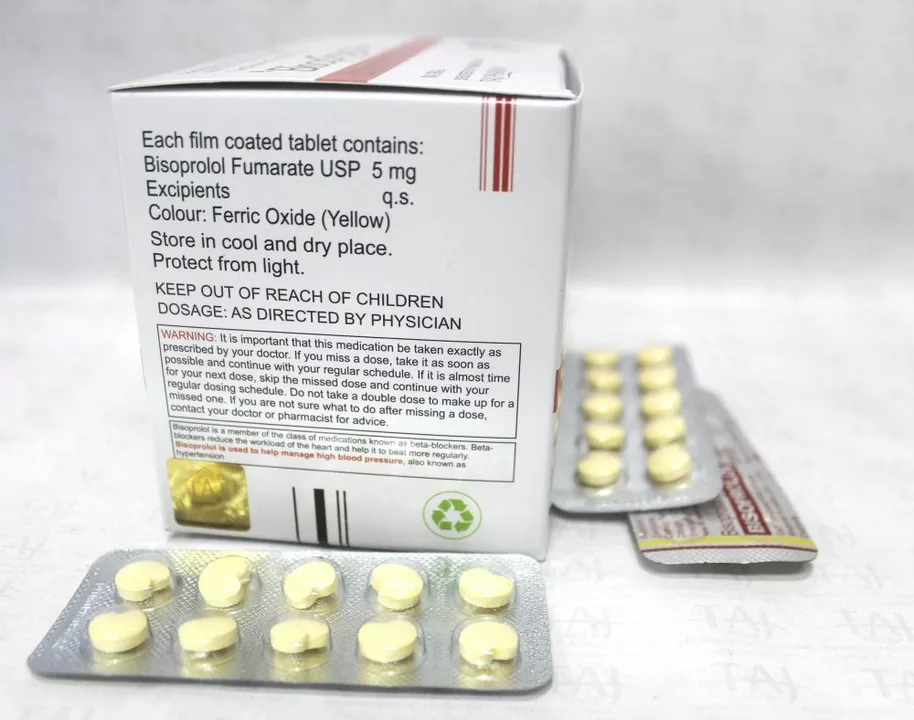In my latest blog post, I discussed the safe process of switching from other beta-blockers to bisoprolol. I highlighted the importance of consulting with a healthcare professional before making any changes to your medication. It's crucial to gradually taper off the current beta-blocker to avoid withdrawal symptoms and monitor any side effects during the transition. I also emphasized the need to start bisoprolol at a low dose and gradually increase it under the guidance of a doctor. It's essential to stay vigilant and communicate any concerns with your healthcare provider to ensure a smooth and safe transition.
Bisoprolol: What it treats and how to use it safely
If your doctor mentioned bisoprolol, you’re dealing with a common beta-blocker used for high blood pressure, angina, some heart rhythm problems, and chronic heart failure. It slows the heart and lowers blood pressure, which reduces strain on the heart. That simple effect can cut symptoms like chest pain and shortness of breath and help prevent hospital visits for heart failure.
Bisoprolol works by blocking beta-1 receptors in the heart. That reduces heart rate and the force of each beat. The result: less oxygen demand by the heart and steadier blood pressure. It’s usually taken once a day because it lasts a long time in the body.
How to take bisoprolol (doses and practical tips)
Typical starting doses vary by condition. For high blood pressure, doctors often begin with 2.5–5 mg once daily and may increase to 10 mg if needed. For heart failure, clinicians start lower and slowly titrate — sometimes as low as 1.25 mg and up to 10 mg under close supervision. Follow your prescriber’s plan; don’t self-adjust.
Take it at the same time each day, usually in the morning. Swallow tablets with water; food isn’t strictly required but taking it with breakfast can help you remember. If you miss a dose, take it when you remember unless it’s almost time for the next one — don’t double up.
Don’t stop bisoprolol suddenly. Stopping fast can cause your heart rate and blood pressure to rebound and may trigger chest pain or rhythm problems. If you need to stop, your doctor will lower the dose gradually.
Side effects, warnings, interactions, and monitoring
Common side effects include tiredness, slow pulse, cold hands or feet, dizziness, and sometimes sleep changes. Serious signs to report right away are fainting, very slow heartbeat, worsening shortness of breath, or sudden weight gain (fluid retention).
Caution if you have asthma or severe COPD — beta-blockers can narrow airways for some people. If you have diabetes, bisoprolol may hide low blood sugar symptoms like rapid heartbeat, so check glucose more often when starting or changing dose. It’s usually avoided in people with marked bradycardia, second- or third-degree heart block, or cardiogenic shock.
Drug interactions worth knowing: combining bisoprolol with calcium-channel blockers like verapamil or diltiazem, or with certain antiarrhythmics, can dangerously slow heart rate or affect blood pressure. Digoxin, clonidine, and some antidepressants may need dose checks. Always tell your doctor and pharmacist about prescription meds, supplements, and herbal products.
Monitoring usually includes blood pressure and heart rate checks, occasional ECG if you have rhythm issues, and kidney function tests if you’re on multiple heart medicines.
Buying meds online? Only use licensed pharmacies and require a prescription. If anything about the site or packaging looks off, get advice from your pharmacist or prescriber before taking the drug. When used correctly, bisoprolol is a reliable, once-daily medicine that helps many people control heart problems and blood pressure.

